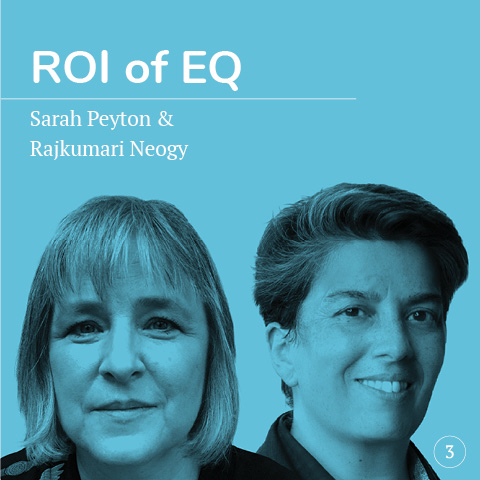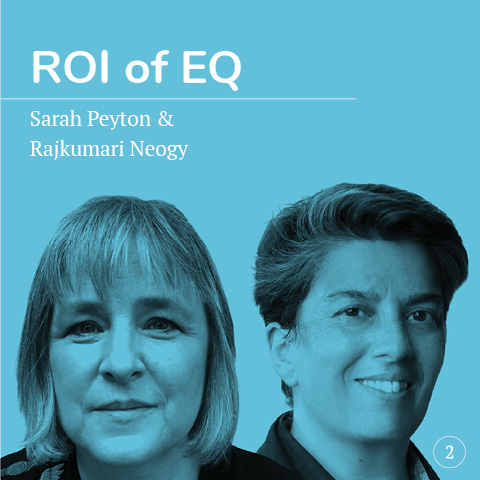PODCASTs
Conversations with Rajkumari

In today’s conversation on the ROI of EQ, Sarah and I discuss a newfound psychological state: Alarmed aloneness. Together, we unpack the neurochemical responses associated with fight, flight, and freeze and explore the uncharted waters of alarmed aloneness. Sarah describes the effects of Western culture on normalized emotions and how alarmed aloneness has never been more prevalent as the country battles COVID-19. Throughout the discussion, we describe how leaders and employees can identify and evaluate different neural responses and learn to regulate their emotions in a more empathetic, collaborative way.
READ MORESEE LESS

The ROI of EQ: How being nice to your employees directly impacts your bottomline
Toxic Workplaces
In episode two of our ROI of Emotional Intelligence series with Sarah Peyton, I share an anecdote that has shaped how I coach each leader in my network. A CEO recently stopped me dead in my tracks by asking, “What’s the point of being nice to my employees?” In this episode, Sarah and I discuss the toxic effects of excluding your employees and the consequences to your bottomline. Sarah encourages leaders to view employees as whole people—not robots who exist to fill a function. We dive into how actualizing an employees’ “wholeness” taps into their most creative selves, yielding more engaged, productive workers dedicated to your team’s success.
READ MORESEE LESS

Introducing the ROI of Emotional Intelligence Series: Discussions with Sarah Peyton, author of Your Resonant Self
Psychological Safety
Welcome to episode one of twelve of my discussions with Sarah Peyton, international speaker and facilitator and author of Your Resonant Self. In this series, we explore the ROI of Emotional Intelligence: How humans can bridge their left- and right-brain tendencies to yield a more coherent world and connected workplace. In episode one, we investigate how companies are tackling remote working—in particular, virtual meetings—and the steps they can take to create more resilient cultures in and beyond the coronavirus era.
READ MORESEE LESS


